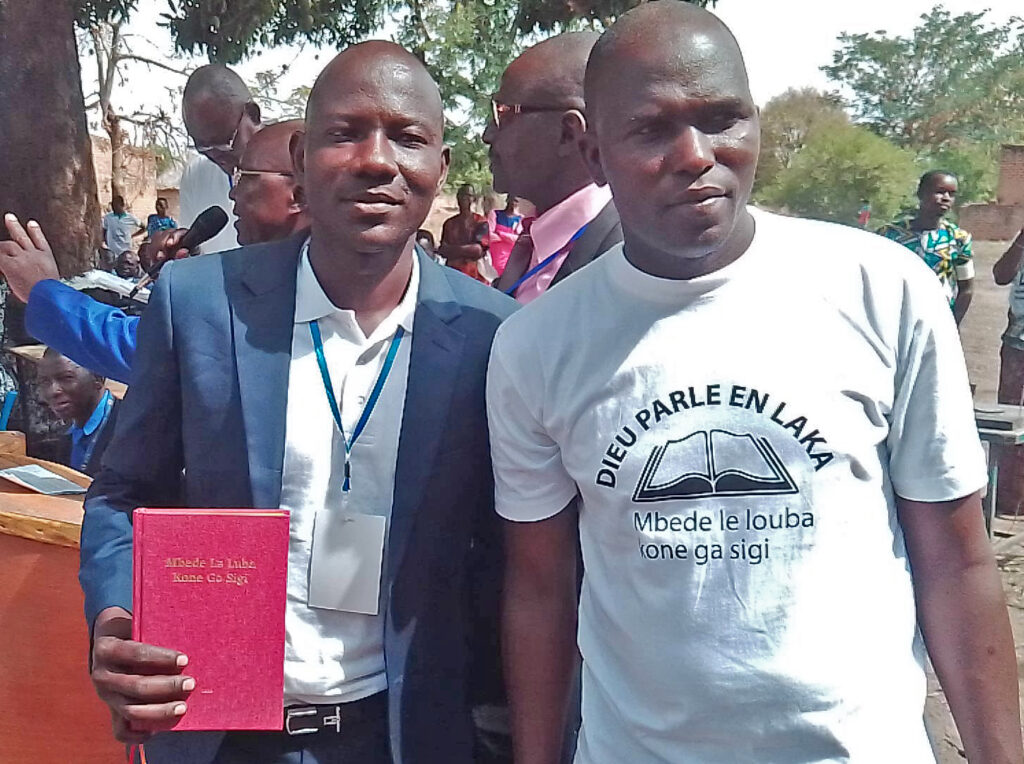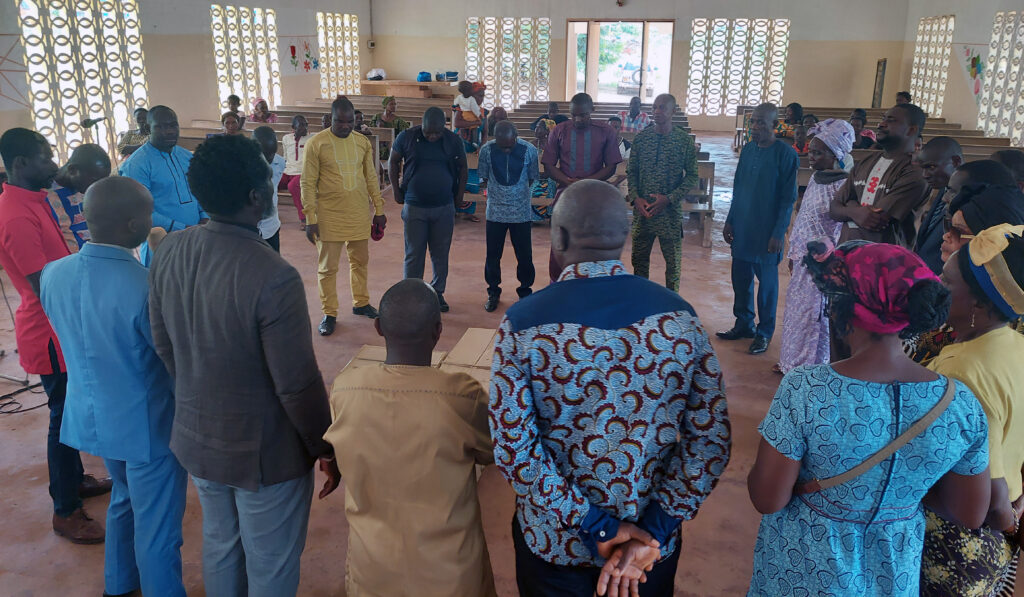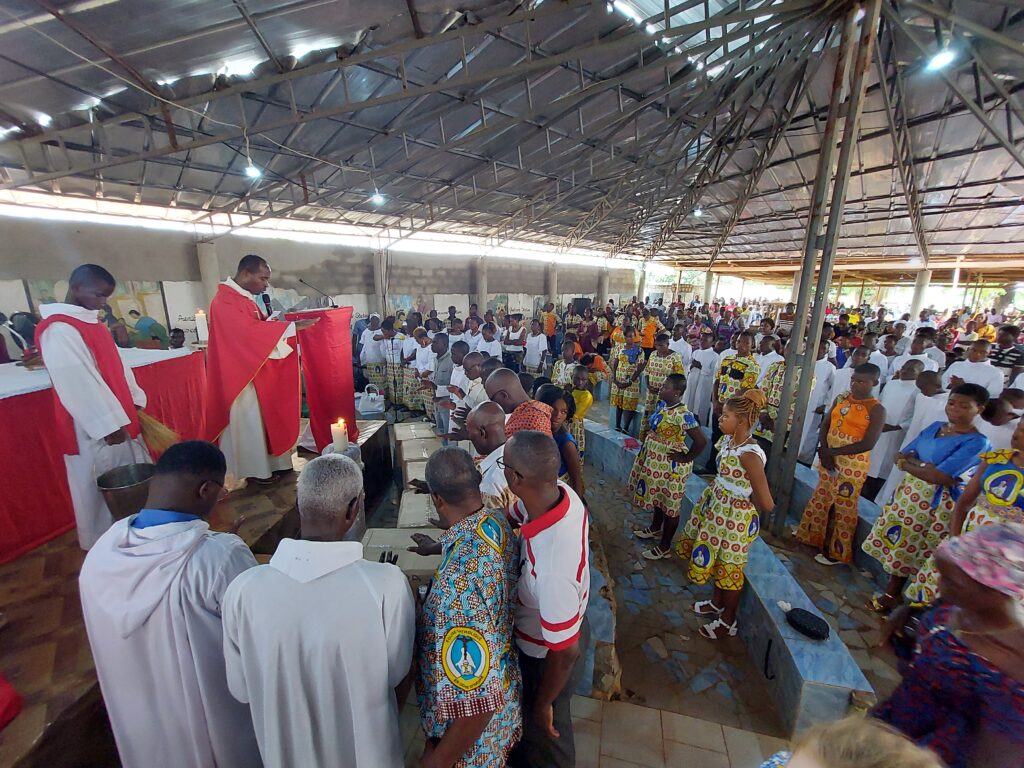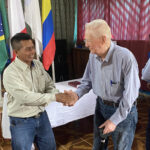Water survival training is not just for mission workers who must routinely risk travel by boat. Understanding the risks inherent in water travel is also important for those managers and supervisors who are responsible for their workers’ safety. With that in mind, nineteen crisis/risk managers from SIL, a JAARS partner, took to the waters of Lake Wateree, South Carolina to get a firsthand perspective of the challenges presented by a water catastrophe such as a capsized boat.
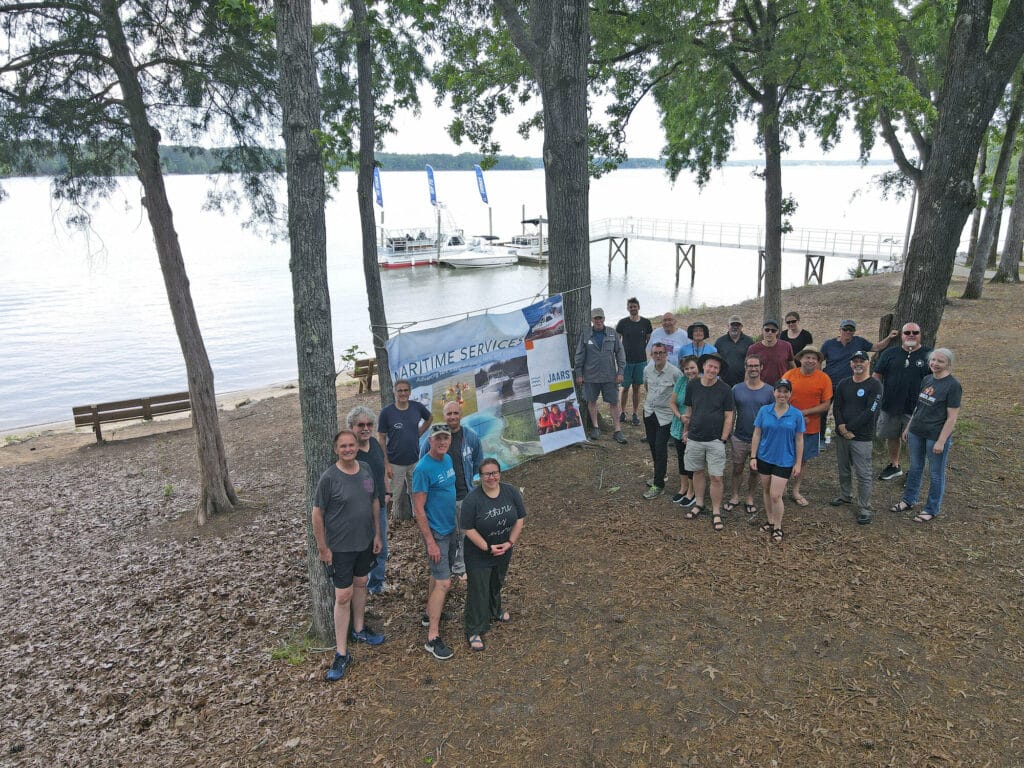
SIL, a global, faith-based nonprofit, works with local communities around the world to develop language solutions that expand possibilities for a better life. One of their core missions is Bible translation. They have a worldwide reach, operating in 104 countries with over 4300 employees. Not surprisingly, Bible translation work in a variety of countries with differing geographies can pose travel challenges and risks for those doing this important work. To address and minimize risks to its workers, SIL has full time crisis managers whose job is to prepare for potential hazards that could endanger their workers. Once a year, this important group of top managers meets in person to discuss their work challenges and share ideas. This year they met at JAARS.
JAARS Maritime Division has an excellent water survival course for mission workers who travel by water. The SIL crisis managers felt this training was important enough to devote a full day to it during their recent week-long conference.
First, landside sessions demonstrated the various items of survival equipment and how to use them. After lunch at a scenic picnic spot next to the lake, the teams took to three boats for practical application of the training. Once in the water, they were able to experience firsthand the benefits of wearing their personal flotation devices while they practiced with the assorted safety and survival gear that enabled them to keep the team together in the water. They also learned how to assess the condition of each member, simulate caring for them if injured or traumatized, and call for help with a variety of devices ranging from a simple signal mirror to hi-tech satellite beacons.
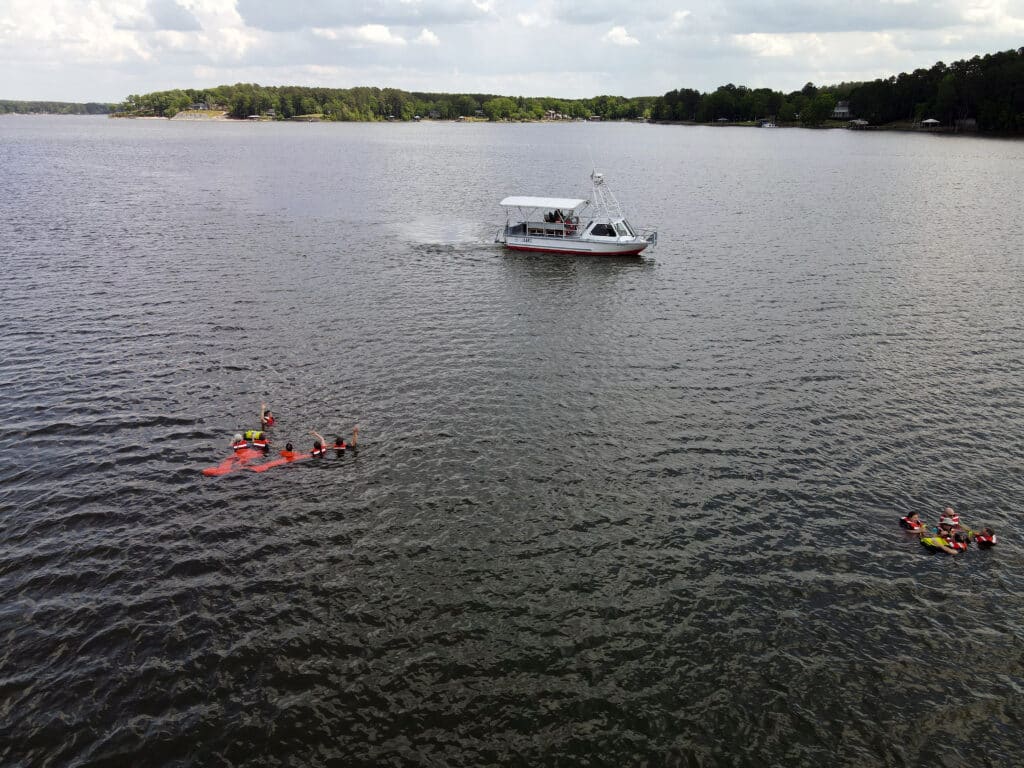
Tim McIntosh, head of the Maritime Division, explains the rationale for training these leaders, even though they will not be the ones traveling. “Let’s say a boat carrying Bible translation workers sinks or capsizes. How does SIL prepare its people with the right equipment and training to keep them safe in the water? After getting an introduction to water survival challenges, the risk managers will be in a better position to know how JAARS can support their constituents with training and equipment. Then they can pass that knowledge on to their teams to help them travel safely.”
A good example of the benefits of this increased awareness came from the Australian risk manager. Their remoteness poses challenges that make an off-grid emergency communication system desirable. JAARS instructors informed them of available devices such as the Garmin InReach which has greater communication capabilities than the satellite beacon that JAARS now uses. With inReach satellite technology and an active Garmin subscription, users can stay in touch globally, send and receive messages, navigate routes, track and share journey information, and if necessary, trigger an SOS via a satellite network to a global emergency response coordination center with staff on duty 24/7. The higher costs associated with this device may be warranted because of the unique challenges in Australia workers face. Knowing what equipment is available will enable each manager to select the best option for his team.
The SIL participants had many positive things to say about their water training. From the feedback forms:
“The training more than met my expectations. It provided vital information for saving lives.”
“I felt it was a great intro into some of the possible life saving options available.”
“I was impressed that the training was at such a high level”
“I learned that water safety is an area that we need to take seriously.”
Thanks to their maritime training at JAARS, SIL risk managers will return with to their diverse countries with a new perspective that will help them in their mission to “watch out for their own.”
You can help mission workers have the proper training and equipment to travel safely by boat as they carry out their important work here.




























































